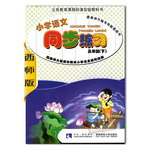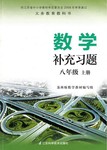题目内容
The apples are delicious. I’d like to have third one because second one is rather too small and I had little food at lunch.
- A.a; a; the
- B.the; the; the
- C.a; the; /
- D.a; a; /
C
考查冠词。第一空的不定冠词a+序数词 意为:再一,又一;第二空是指第二个苹果;固定词组at lunch午餐时;结合句意可知C正确。句意:那些苹果非常美味。我想再吃一个,因为第二个太小了,我在午餐的时候吃得很少。
考查冠词。第一空的不定冠词a+序数词 意为:再一,又一;第二空是指第二个苹果;固定词组at lunch午餐时;结合句意可知C正确。句意:那些苹果非常美味。我想再吃一个,因为第二个太小了,我在午餐的时候吃得很少。

练习册系列答案
 同步练习河南大学出版社系列答案
同步练习河南大学出版社系列答案 同步练习西南师范大学出版社系列答案
同步练习西南师范大学出版社系列答案 补充习题江苏系列答案
补充习题江苏系列答案
相关题目
After they had supper the father divided the apples ______ four piles.
|
A.into |
B.among |
C.between |
D.from |